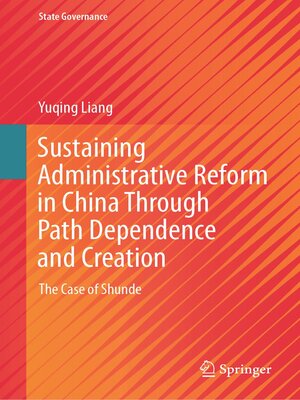Sustaining Administrative Reform in China Through Path Dependence and Creation
ebook ∣ The Case of Shunde · State Governance
By Yuqing Liang

Sign up to save your library
With an OverDrive account, you can save your favorite libraries for at-a-glance information about availability. Find out more about OverDrive accounts.
Find this title in Libby, the library reading app by OverDrive.



Search for a digital library with this title
Title found at these libraries:
| Loading... |
This book looks into the processes sustaining the administrative reform in Chinese local government and the roles of different actors during different phases by tracing a vivid administrative reform process in Shunde district, Guangdong province between 2009 and 2014. In 2008, Chinese central government initiated a new round of large-scale, top-to-bottom administrative reform—"mega-ministry" administrative reform—to address the long-lasting administrative problems. Against this background, the reforms in Shunde government (county level) operated well and sustained for several years, which was enlarged to the administrative licensing field and hence influenced China's reforms in the following 10 years. Shunde case could allow us a better peep at the factors that contribute to the sustenance of reform. The analyses in this book find that sustenance of reform reflects, ironically, the logics of both path dependence and path creation. The past reform trajectories have created a favorable background for further reform to evolve, and a receptive ground in which exogenous forces interacted with the local reform-minded actors to create the new reform innovations. The combination of path dependence and path creation kept local reform afloat.







